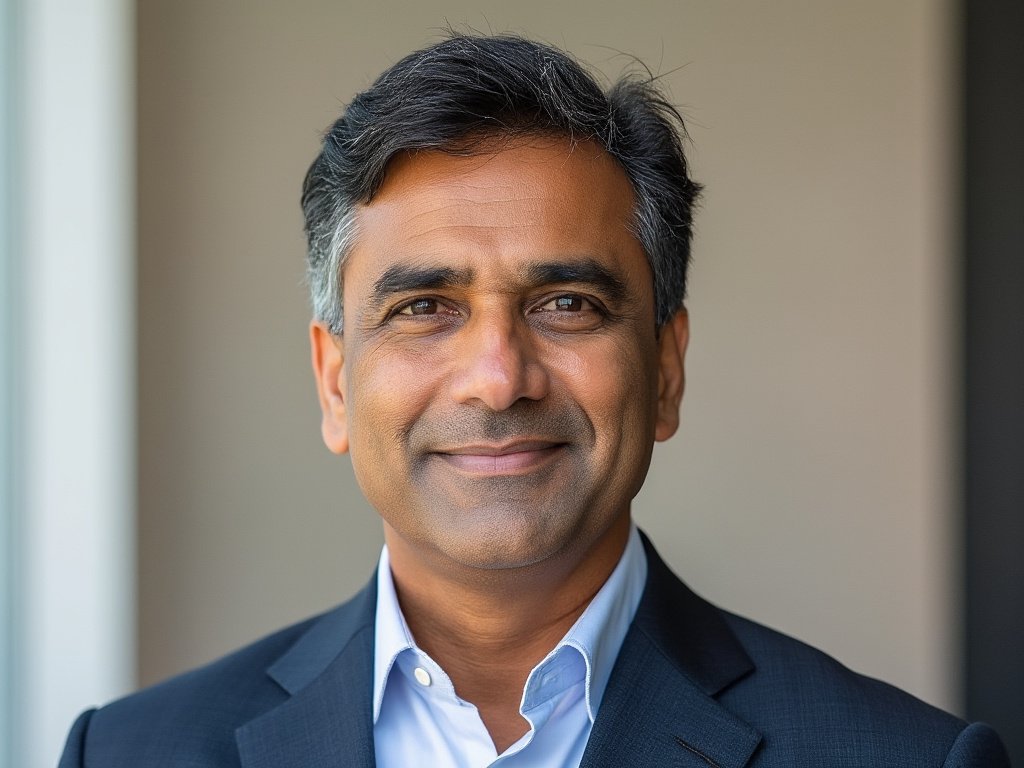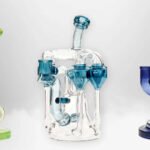Why Healthcare Facilities Are Rapidly Adopting eMAR Technology
The healthcare industry has witnessed a significant transformation in medication management with the evolution from traditional paper-based systems to Electronic Medication Administration Record (eMAR) platforms. These digital solutions have revolutionized how healthcare professionals administer, track, and manage medications across various healthcare settings. As medication errors remain one of the most common causes of preventable harm in healthcare environments, the adoption of eMAR systems represents a critical advancement in patient safety protocols and operational efficiency.
The Benefits of eMAR Platforms
Enhanced Patient Safety
Patient safety stands as the cornerstone benefit of eMAR implementation. By digitizing the medication administration process, these platforms significantly reduce the risk of medication errors through automated verification systems and real-time alerts. The integration of barcode scanning technology ensures that the “five rights” of medication administration are consistently met: right patient, right medication, right dose, right route, and right time.
Studies have demonstrated that eMAR systems can reduce medication administration errors by up to 87%, particularly through the elimination of transcription errors and missed doses. The automated alert systems promptly notify healthcare providers of potential drug interactions, allergies, or contraindications, creating an additional layer of safety before medications reach patients.
Improved Efficiency and Workflow
Healthcare facilities implementing eMAR systems report substantial improvements in operational efficiency. The streamlined digital process eliminates time-consuming paperwork and manual documentation, allowing nursing staff to complete medication rounds more quickly and accurately. Mobile eMAR solutions enable caregivers to document administration in real-time at the point of care, rather than retroactively at a nursing station.
This enhanced efficiency translates to tangible time savings, with some facilities reporting that nurses save up to two hours per shift previously spent on medication documentation tasks. The ability to quickly access and update medication records, combined with simplified reordering processes, creates a more fluid workflow that benefits both staff and patients.
Better Communication and Collaboration
eMAR platforms serve as centralized communication hubs that connect all stakeholders in the medication management process. Physicians, pharmacists, and nursing staff can instantly share critical information, reducing the risk of miscommunication that often leads to medication errors.
For example, when a physician updates a medication order, the change is immediately visible to both the pharmacy for dispensing and to nurses for administration. This seamless information flow eliminates communication gaps that commonly occur with paper-based systems or fragmented digital solutions.
Comprehensive Oversight and Compliance
Modern eMAR systems offer robust reporting and analytics capabilities that support regulatory compliance and quality improvement initiatives. Clinical leadership can easily monitor medication administration patterns, identify potential issues, and implement corrective measures before problems escalate.
The comprehensive audit trails automatically generated by eMAR platforms simplify regulatory compliance by providing complete documentation of every medication event. These detailed records are invaluable during audits and inspections, demonstrating an organization’s commitment to medication safety and quality care.
Enhanced Resident/Patient Care
Perhaps the most meaningful benefit of eMAR implementation is the positive impact on patient care quality. By reducing the administrative burden on healthcare providers, eMAR systems allow more time for direct patient interaction and care activities. The consistent medication scheduling and administration facilitated by eMAR platforms lead to improved therapeutic outcomes and enhanced patient satisfaction.
Patients benefit from more personalized attention during medication administration, as caregivers can focus on patient education and monitoring rather than paperwork. This shift from documentation to direct care represents a significant advancement in patient-centered healthcare delivery.
The Future of eMAR Platforms
Integration with Advanced Technologies
The next generation of eMAR systems will increasingly leverage artificial intelligence (AI) and machine learning technologies to enhance medication management. Predictive analytics algorithms will identify potential adverse drug events before they occur by analyzing patterns in patient data and medication interactions.
Natural language processing capabilities will simplify documentation by converting spoken notes into structured data entries. Meanwhile, integration with Internet of Things (IoT) devices and wearable technology will enable continuous monitoring of patient vital signs and other health metrics, allowing for more responsive medication management based on real-time physiological data.
Expanding Interoperability
Future eMAR platforms will feature deeper integration with the broader healthcare technology ecosystem. Seamless connections with telehealth platforms will enable remote medication management and monitoring, particularly valuable for home healthcare settings and rural communities with limited access to healthcare facilities.
Enhanced interoperability standards will facilitate more fluid data exchange between eMAR systems and electronic health records (EHRs), pharmacy management systems, decision support tools, and other healthcare applications. This connected ecosystem will support more coordinated care delivery and comprehensive medication management across the entire patient journey.
User Experience and Accessibility
As eMAR technology matures, we can expect significant advances in user interface design and accessibility features. Future systems will incorporate intuitive, role-based interfaces that adapt to different users’ needs and preferences, reducing training requirements and minimizing the risk of user error.
Cloud-based deployment models will become increasingly prevalent, offering greater flexibility, scalability, and remote accessibility. Mobile-first design approaches will ensure that healthcare providers can efficiently manage medications from any location, further enhancing workflow efficiency and care coordination.
Data Security and Regulatory Compliance
With growing concerns about healthcare data security, future eMAR platforms will implement advanced protection measures like blockchain technology for tamper-proof medication records and sophisticated encryption protocols. These enhanced security features will safeguard sensitive patient information while maintaining compliance with evolving regulatory requirements such as HIPAA and GDPR.
Automated compliance monitoring will alert organizations to potential regulatory issues before they become violations, helping healthcare facilities navigate the increasingly complex landscape of healthcare regulations and standards.
Advanced Analytics and Reporting
Tomorrow’s eMAR systems will offer increasingly sophisticated analytics capabilities, transforming medication data into actionable insights. Advanced reporting tools will help healthcare organizations identify opportunities for quality improvement, cost reduction, and enhanced patient outcomes.
Real-time dashboards will provide clinical leaders with immediate visibility into medication administration metrics, enabling more responsive management and timely interventions. Population health analytics will identify trends across patient groups, supporting more effective medication protocols and treatment approaches.
Challenges and Considerations
Data Privacy and Security
As eMAR systems collect and store increasingly sensitive patient information, healthcare organizations must address growing concerns about data privacy and security. Implementing robust cybersecurity measures and maintaining compliance with data protection regulations represent ongoing challenges for eMAR implementation and operation.
Organizations must develop comprehensive security protocols, including regular vulnerability assessments, staff training on security best practices, and incident response plans to address potential data breaches or system compromises.
Change Management and Training
Successful eMAR implementation requires effective change management strategies and comprehensive staff training programs. Resistance to new technologies and workflows can undermine adoption efforts, necessitating thoughtful approaches to organizational change.
Healthcare facilities must invest in tailored training programs that address the specific needs of different user groups, from physicians and pharmacists to nursing staff and administrators. Ongoing support resources, including super-users and help desk services, will facilitate smoother transitions and higher adoption rates.
Cost and Infrastructure
While eMAR systems offer significant long-term benefits, the initial implementation costs and infrastructure requirements can present challenges for healthcare organizations, particularly smaller facilities with limited resources. Organizations must carefully evaluate different deployment models—on-premise, cloud-based, or hybrid approaches—to determine the most cost-effective solution for their specific needs.
Return on investment analyses should consider not only direct cost savings but also the value of improved patient safety, enhanced care quality, and increased staff satisfaction when assessing the financial impact of eMAR implementation.
The Future of Healthcare: Why eMAR Systems Will Define Medication Safety and Efficiency
Electronic Medication Administration Record platforms have transformed medication management in healthcare settings, delivering substantial benefits in patient safety, operational efficiency, and care quality. As these systems continue to evolve, integrating advanced technologies and expanding interoperability capabilities, they will further enhance medication management practices and support more coordinated, patient-centered care.
The future of eMAR platforms promises even greater innovation, with AI-driven predictive capabilities, seamless integration across the healthcare technology ecosystem, and enhanced analytics transforming how medications are managed and administered. While challenges related to security, training, and infrastructure must be addressed, the potential benefits of advanced eMAR systems make them an essential component of modern healthcare delivery.
Healthcare organizations that embrace these evolving technologies will be well-positioned to deliver safer, more efficient, and more effective medication management, ultimately improving patient outcomes and advancing the quality of healthcare delivery.

As Editor-in-Chief of Southwick News, Dhruv Patel combines his background in computer science from UC Berkeley with his Stanford journalism training to pioneer innovative approaches to digital news delivery.



